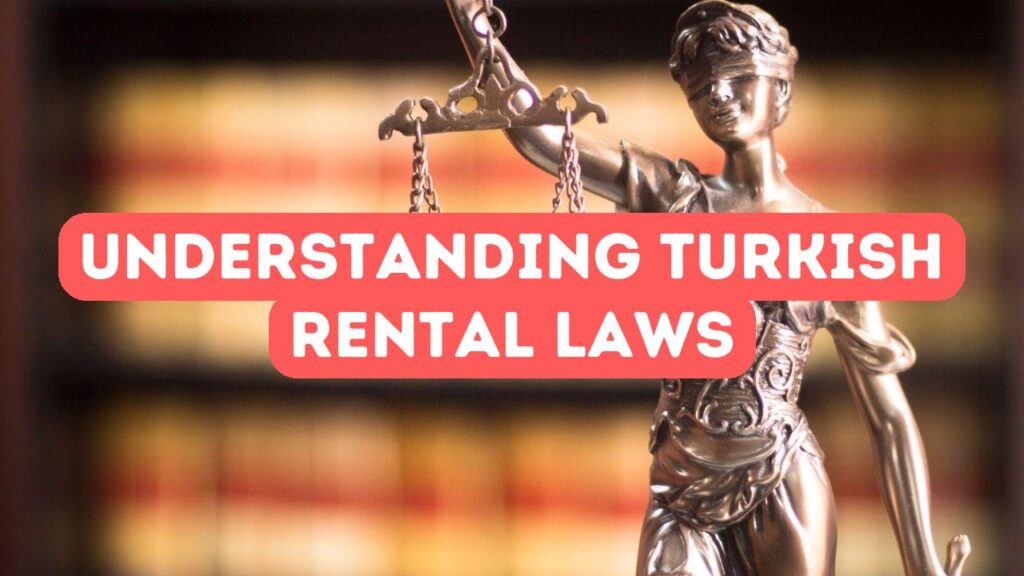Navigating the complexities of Turkish rental laws is essential for both property owners and tenants, particularly for foreigners unfamiliar with the legal landscape. At Gordion Partners, we aim to demystify these regulations to ensure our clients make well-informed decisions when renting property in Turkey. Our comprehensive understanding of this legal framework empowers us to offer precise and tailored advice, whether you’re seeking to secure a residential lease, manage a rental investment, or understand your rights and responsibilities as a tenant or landlord. Join us as we delve into the critical aspects of Turkish rental laws, shedding light on key components such as lease agreements, tenant and landlord obligations, and dispute resolution processes, ensuring that your real estate endeavors in Turkey are both legally sound and stress-free.
Key Provisions of Turkish Tenancy Agreements
Turkish tenancy agreements are comprehensive documents that establish the fundamental terms and conditions governing the rental relationship between the landlord and tenant. Key provisions typically include the duration of the lease, rental payment terms, security deposit requirements, and the responsibilities related to maintenance and repairs. Additionally, agreements often outline the conditions under which the lease can be terminated, either by mutual consent or due to specific breaches. Understanding these elements is crucial for avoiding potential disputes and ensuring that both parties are aware of their legal obligations and rights. At Gordion Partners, we provide detailed guidance to help our clients navigate these agreements, ensuring compliance with Turkish rental laws.
In addition to the basics, Turkish tenancy agreements often stipulate specific clauses regarding rent adjustment mechanisms, which can include periodic rent increases that align with the inflation rate or other agreed-upon criteria. These clauses are designed to protect landlords from economic fluctuations while ensuring that tenants are not subject to arbitrary rent hikes. Another important aspect is the subletting policy, which generally requires the landlord’s consent for sublease arrangements, highlighting the need for clear communication and mutual agreement. Furthermore, many agreements incorporate provisions for dispute resolution, detailing the steps to be taken in case of disagreements, often encouraging mediation or arbitration before legal action. At Gordion Partners, we ensure our clients fully understand these provisions, promoting a harmonious rental experience and preventing misunderstandings.
Another notable provision in Turkish tenancy agreements is the requirement for detailed property condition reports at the beginning and end of the lease period. These reports help document the state of the property, including any existing damages or areas needing repair, to prevent future disputes over responsibility for maintenance issues. Additionally, Turkish law mandates that any alterations or modifications to the property by the tenant must receive prior written approval from the landlord, ensuring that the property is returned in its original condition. Utility responsibilities are also typically outlined, clearly indicating whether the landlord or tenant is responsible for paying for services such as water, electricity, and gas. At Gordion Partners, we emphasize the importance of these provisions, offering expert advice to help our clients maintain transparency and fairness throughout their rental transactions.
Legal Rights and Responsibilities of Tenants and Landlords
In Turkey, both tenants and landlords have distinct legal rights and responsibilities designed to protect both parties in a rental agreement. Tenants are entitled to a habitable living space, free from serious defects, as well as the right to privacy and peaceful enjoyment of the property. They are also responsible for paying rent on time, maintaining the property in good condition, and adhering to the terms specified in the lease agreement. On the other hand, landlords must ensure the property meets all legal and safety standards and are responsible for significant repairs that may arise. Additionally, they must respect the tenant’s privacy and cannot modify the terms of the lease agreement without mutual consent. Understanding these rights and responsibilities is crucial for fostering a harmonious landlord-tenant relationship and preventing potential legal disputes.
Both parties should be aware of the procedures involved in lease renewals and terminations. In Turkey, lease agreements typically run for one year and renew automatically unless either party provides notice of termination at least 15 days before the lease expiry. Tenants have the right to initiate the termination of the lease at any time, provided they give appropriate notice as stipulated in the agreement. Landlords, however, can only terminate the lease under specific conditions, such as the tenant’s failure to pay rent or significant breaches of the lease terms. If disputes arise regarding termination or lease renewal, these matters can be taken to court, where both parties will need to present their case. Familiarizing oneself with these procedures ensures that lease engagements follow the legal framework, reducing the risk of conflicts and misunderstandings.
In addition to lease renewals and terminations, it is also essential to comprehend the formal processes for addressing and resolving disputes between tenants and landlords. In Turkey, such conflicts can often be settled through mediation before escalating to the court system. Mediation is a cost-effective and efficient method that encourages both parties to reach a mutually agreeable solution under the guidance of an impartial mediator. However, if mediation fails, legal action may be necessary. Both tenants and landlords must gather relevant documentation, such as the lease agreement, payment records, and any correspondence regarding the dispute, to support their claims in court. Being well-prepared and informed about the available legal remedies not only facilitates smoother resolution but also minimizes financial and emotional strain for both parties involved.
Navigating the Dispute Resolution Process in Turkish Rental Market
Dispute resolution in the Turkish rental market can be intricate, yet understanding the available options can make the process more manageable for both tenants and landlords. In Turkey, disputes are primarily resolved through mediation, arbitration, or formal legal proceedings. Mediation offers a less formal, often faster, and more cost-effective alternative, allowing parties to reach a mutually agreeable solution with the help of a neutral third party. If mediation fails, arbitration provides a more structured approach with binding decisions, while court proceedings remain the ultimate recourse for unresolved conflicts. At Gordion Partners, our expertise ensures that clients are well-informed about each stage of the dispute resolution process, assisting them in selecting the most appropriate and effective method to address their rental disagreements.
One crucial aspect to consider in dispute resolution is the legal framework governing rental agreements in Turkey. Turkish rental laws are outlined in the Turkish Code of Obligations, which details the rights and responsibilities of both tenants and landlords. Understanding these regulations is vital for preventing conflicts and ensuring that any disputes are handled according to the legal standards. For example, tenants have specific protections against unjust eviction or rent increases, while landlords have the right to ensure their property is maintained in good condition. At Gordion Partners, we thoroughly educate our clients on these legal stipulations, providing clarity and direction to help prevent disputes from arising and offering strategic advice for a legally compliant and harmonious rental experience.
When disputes arise that cannot be resolved through initial negotiations or understanding of the legal framework, court proceedings become an essential avenue for a definitive resolution. In such cases, it’s crucial to gather all relevant documentation, including the lease agreement, communication records, and any evidence supporting your position. Turkish courts are generally efficient, but the process can still be time-consuming and entails various procedural steps that may seem daunting to foreigners. At Gordion Partners, we guide our clients meticulously through each phase of the legal process, helping them prepare and present their cases effectively. Our deep familiarity with both local customs and legal intricacies ensures that our clients’ interests are robustly represented, paving the way for fair and just outcomes in the Turkish rental market.






